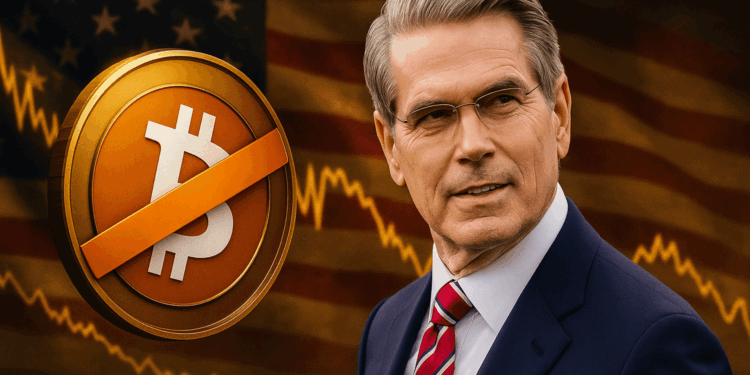- Bitcoin fell below $120K after the U.S. Treasury said it won’t buy more for its reserve.
- The current holdings, valued at $15–$20B, will not be sold, according to Scott Bessent.
- Rising U.S. debt could still push BTC toward fresh all-time highs in the long run.
Bitcoin took a sharp turn downward Thursday, sliding under the $120K mark just hours after setting a fresh record high. The drop came on the heels of U.S. Treasury Secretary Scott Bessent making it clear the government isn’t planning to add any more Bitcoin to its strategic stash — at least for now.
From All-Time High to Fast Reversal
Early in the day, BTC blasted past $124,000, briefly overtaking Google’s $2.4 trillion market cap to become the world’s fifth-largest asset. But the excitement faded fast. By mid-session, Bitcoin was trading around $118,730, losing its grip on the $120,000 psychological support level, according to Cointelegraph data.
Speaking to Fox Business, Bessent said while the U.S. has begun building a Bitcoin reserve from confiscated assets, there’s no plan to buy more on the open market. “We’re not going to be buying that,” he said, “but we are going to use confiscated assets and continue to build that up.”
The Strategic Bitcoin Reserve
President Donald Trump had signed an executive order back on March 6 to establish both a strategic Bitcoin reserve and a separate digital asset stockpile, initially funded with crypto seized in criminal cases. At the time, Bessent was one of the loudest voices pushing for a shift away from selling these assets, arguing they should be brought onshore and stored under a regulated framework.
In April, Bo Hines from the Presidential Council of Advisers for Digital Assets said the administration was even considering using tariff revenues and reassessing gold certificates to fund Bitcoin purchases. But Thursday’s comments show that — for now — those ambitions are on hold.
No Selling, but No Buying Either
Bessent did offer one silver lining for BTC bulls: the government doesn’t plan to sell what it already holds. He estimated the current reserve’s value at somewhere between $15 billion and $20 billion. His view echoes that of White House AI and crypto lead David Sacks, who called the reserve a “digital Fort Knox” in March and said it would be kept purely as a store of value.
Meanwhile, the U.S. national debt just crossed $37 trillion, a record that could add fuel to Bitcoin’s appeal as an inflation hedge. Some analysts believe the debt burden, paired with continued money supply growth, could still set the stage for another leg higher in BTC — regardless of Treasury’s buying plans.














